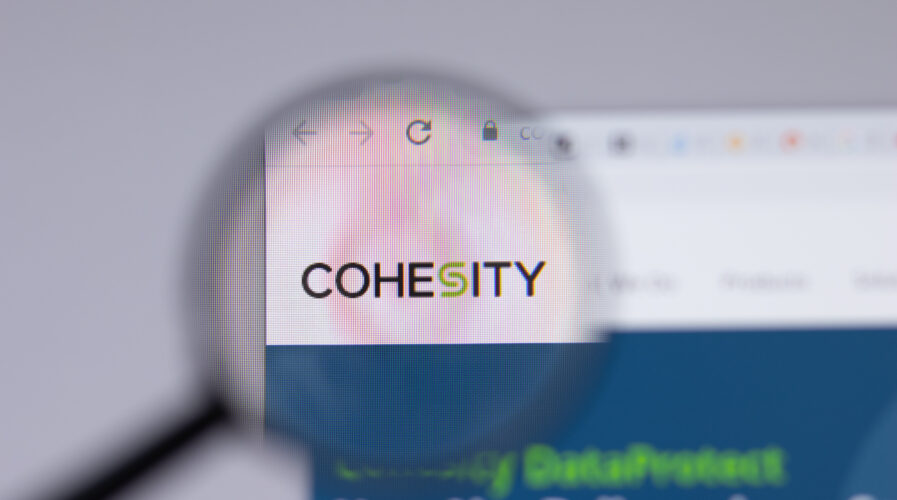
Cohesity: “In security, it’s always team sport,” CEO Sanjay Poonen shares as he peaks into 2023(Source – Shutterstock)
Can efficient data management ease data backup?
Data management can be complex for most organizations today. For some organizations, one of the biggest problem when it comes to data backup is data management capabilities. With data growing exponentially, managing and backing up data is becoming complex for most organizations today.
At the same time, the past couple of years have witnessed many high-profile security breaches targeting government platforms as well as the healthcare sector in the region. However, the fundamental discipline of protecting, storing, identifying, and provisioning organizational data remains not only haphazard for many organizations but is a complex, inefficient and expensive chore.
Today, organizations need to be able to continue knowing their data is safe, secure, and easily retrieved. The reality is data backup is no longer a choice but is key to proactive, digital operational risk management.
In conjunction with World Backup Day, Sheena Chin, Head of ASEAN at Cohesity, talks to Tech Wire Asia about the extensive challenges IT managers face in accelerating the organization’s digital agenda while protecting its vital asset – data.
How can next-gen data management capabilities help organizations overcome these?

(Source – Cohesity)
With the explosive growth of data in recent times, data management is a challenge faced by all organizations today, especially as it continues to escalate due to the accelerated pace of digital transformation, adoption of data-driven applications, and the switch to remote and hybrid workforces.
Many enterprises are working with legacy technology that wasn’t designed for the IT and technology environments of today, let alone today’s sophisticated cybersecurity challenges of ransomware and targeted attacks with greater blast radii or that focus on exfiltrating backup data. Legacy technology is highly inefficient because of its limited capabilities whereby it can only perform single or siloed functions, and its inability to run as part of an integrated environment with other third-party solutions – whether they are security or IT infrastructure related.
These limitations not only result in time sinks for already-stretched IT teams as they have to manage multiple products from different vendors – often forcing a DIY approach to data management, but it also increases the total cost of ownership, beyond putting IT departments on the backfoot when it comes to managing and protecting data.
Next-gen data management platforms or capabilities that deliver a unique combination of simplicity at scale, zero-trust security principles, powered by AI-insights, and 3rd-party extensibility, allow organizations to address the complexity, inefficiency, cost, and risk of managing data that is associated with legacy solutions while helping to unlock limitless value from data.
Why are effective data management and protection amongst public and private organizations crucial?
According to the 2021 EY Global Information Security Survey (GISS), 57% of Asia Pacific businesses are unsure if their cybersecurity defenses are strong enough to combat hackers’ evolving strategies.
New technologies such as 5G, IoT, AI, and machine learning, all require effective data management to maximize their value to citizens and businesses and ensure trust in their deployment.
Success will be determined by organizations that can gain better insights from data, protect against ransomware, and make data governance an imperative. Public and private organizations can meet these objectives by implementing a next-gen data management platform to protect their data assets, sustain operational continuity, and generate stakeholder trust.
Data management goes beyond helping to create cyber resilient organizations, it underpins digitally resilient economies and societies, by playing a key role in the effective adoption of new technology and organizations’ technology evolution.
How can next-gen data management and its data protection capabilities improve a company’s security posture, particularly against ransomware?
Ransomware attacks are predicted to occur every 2 seconds within the next decade and typically cost 10 to 15 times more than the actual ransom demand, according to Cybersecurity Ventures.
Organizations with unstructured and siloed data that is scattered across a data center, the edge, remote offices, and multiple clouds, with no central visibility or control, have fragmented data, which usually means they have ‘dark data’.
Dark data is a critical concern for organizations’ data management and compliance objectives because if they’re not aware of their data footprint, they can’t secure their data. Organizations who consolidate where their data is stored and maintained, reduce their vulnerability to cyberattacks by reducing their attack surface.
Organizations also need to ensure that their backed-up production data not only occurs frequently but is encrypted, immutable, and easily restored, as these factors will have a huge impact on both their cyber resilience and overall security posture.
Cohesity’s next-gen data management platform supports a zero-trust architecture and helps organizations preserve business continuity and their reputation through effective data governance, management, backup, restoration, and protection, all via a single hyperscale software and a single role-based UI which helps to ease manageability.
READ MORE
- Safer Automation: How Sophic and Firmus Succeeded in Malaysia with MDEC’s Support
- Privilege granted, not gained: Intelligent authorization for enhanced infrastructure productivity
- Low-Code produces the Proof-of-Possibilities
- New Wearables Enable Staff to Work Faster and Safer
- Experts weigh in on Oracle’s departure from adland


